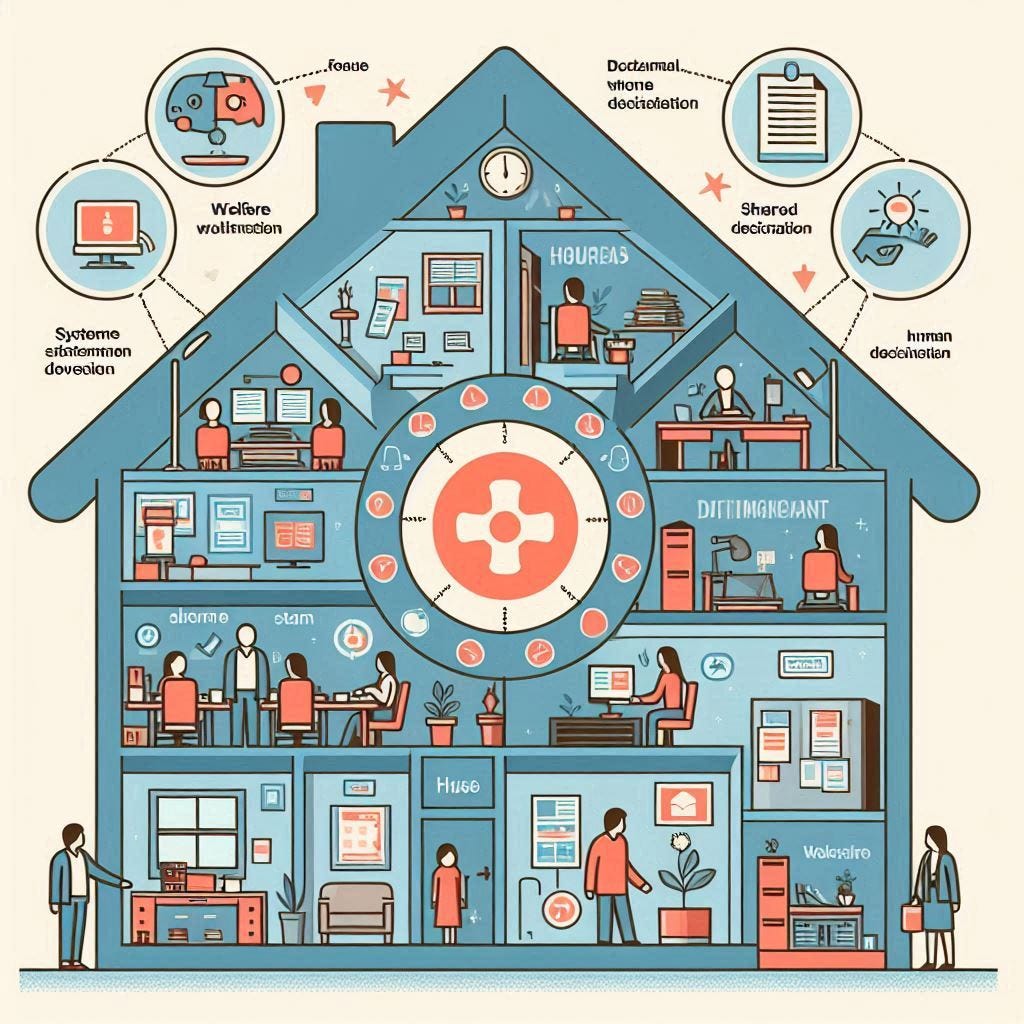When I look back on the past two years, I see a red thread between our local quality work with The House in Nordmaling and the systemic issues I've raised in national debate. It's fascinating how experiences from a rural municipality's social services can illuminate fundamental structural problems in Swedish welfare.
It all began in 2021 out of acute frustration. High staff turnover, constantly exceeded budgets, and system chaos. This is where The House was born – our management system that has now become the backbone of our organization.
But the more we worked on creating local structure, the clearer it became that many of our challenges were about fundamental design flaws in Swedish social services. This led me to produce three debate articles during the year:
In Socionomen I highlighted the problems of decentralization – 290 municipal authorities create fragmentation, not diversity. In Dagens Samhälle I argued for state-level comprehensive responsibility with coherent management chains. In DN Debatt I focused on child protection's core problem – that we mix family support, child protection, and crime prevention in the same system.
What's striking is how our work with The House mirrors the need for systems thinking nationally:
Locally we've learned that structure creates freedom, that clear processes reduce stress, that strength-based approaches must stand as core principles in governance, and that holistic thinking requires deliberate design.
Nationally we need to acknowledge that decentralization can weaken quality, that complexity requires specialization, and that conflicting system logics create impossible situations at the local level.
Politics often focuses on symptoms – stricter laws, increased resources – instead of questioning whether the structure itself is the problem. In our work with The House, we've learned that sometimes you must rebuild from the ground up, not just repaint the walls.
Change requires patience, structure must come before culture, and participation is crucial. We've worked for over two years with The House and now see tangible results: increased employee satisfaction, stabilized finances, and improved quality.
Sometimes I wonder if I'm naive to believe that system issues can be solved. But then I see what we've accomplished locally. If it's possible to change systems on a small scale, why wouldn't it be possible on a large scale?
Perhaps we need to start there – by showing that other ways are possible. Not by criticizing what exists, but by building something better.
That's what we continue with locally, at least. One room at a time in The House.
A reflection on when local system development meets national debate.



